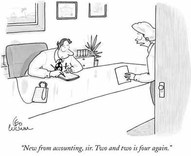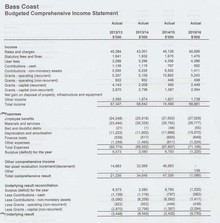
COUNCILLORS are responsible for three things in running a council: governance, strategy and growth. In all three areas, they should use highly competent council staff to assist in their decision-making processes.
Since being elected, our Bass Coast councillors have made some appalling decisions. The decision not to proceed with the Cowes refurbishment project comes to mind, as does the decision not to pursue state government funding for the Wonthaggi highball stadium project.
These decisions have been based on a narrow view of Bass Coast Shire’s financial position which reveals a clear misunderstanding of their role and the fundamentals of financial management.
Many of these decisions seem to be based on the assessments of one councillor, Cr Les Larke, that Bass Coast is in severe financial difficulty.
In this week’s South Gippsland Sentinel-Times, Cr Les Larke stated: “I wish to confirm that the Bass Coast Shire Council has incurred and is projected to incur substantial deficits (excess of operating expenses over operational income) for a sustained period of five years as follows:
Year ending 30th June 2013 $3.448M
Year ending 30th June 2014 $8.542M
Year ending 30th June 2015 $2.432M
Year ending 30th June 2016 $5.730M.
Year ending 30th June 2017 $4.233M (Projected)
The council’s audited financial statements recorded:
Year ending 30th June 2013 a surplus of $6.573M
Year ending 30th June 2014 a surplus of $2.89M
Year ending 30th June 2015 a surplus of $6.793M
Year ending 30th June 2016 a deficit of $1.225M
These are huge discrepancies that Cr Les Larke needs to explain.
At 30th June 2016 the Bass Coast had cash and cash equivalents of $26.342M. At the same period in 2015 it was $24.320M, in 2014 $17.076M and in 2013 $17.014M. People of Bass Coast, please note the increasing bank balance!
At 30th June 2016, Bass Coast had equity of $576.795M. At the same period in 2015 it was $577.881M, in 2014 $530.525M and in 2013 $491.398M. People of Bass Coast, please note our equity has grown by $85M in the past three years.
It is just plain wrong to suggest that Bass Coast is in financial difficulty.
I have suggested that councillors calls for a 12-month rolling cash flow forecast that reveals monthly income and expenses and forecasts monthly closing cash and cash equivalent balance. I have also suggested that councillors call for the council’s borrowing capacity.
Bass Coast needs to grow because if you don’t grow you wither and die. Think the City of Bass Coast and how we are going to get there.
THE POST ASKED CR LARKE TO RESPOND TO MR SCHOONEVELDT’S POINTS. HE DID SO AS FOLLOWS:
The operating deficits stated in my letters are confirmed as correct and determined from publicly available annual reports and the December 2016 Financial Report which includes the forecast to 2017.
I suggest Mr Schooneveldt examine published annual reports more closely, particularly the fine print in notes to the accounts in relation to the excess of operating expenditure over operating income - otherwise known as the adjusted underlying result, which highlights sustained operating deficits over the years as outlined.
AND IN AN OPEN LETTER TO MR SCHOONEVELDT:
 Long-term Financial Plan, 2017-27
Long-term Financial Plan, 2017-27 This confirms operating expenditure exceeded operating income over these financial years in excess of $20m, and such a trend is not financially sustainable.
That said, I fully respect the difficulty you encountered in interpreting publicly available information, and agree there is a need for more transparency to assist our community further understand and interpret annual reports including financial results.
I also confirm my offers to meet, and answer any further questions you may have.
TO WHICH MR SCHOONEVELDT RESPONDED:
Cr Larke likes to talk while I like to have the figures do the talking, especially in regards to cash flows.
There are no notes or schedules to the accounts that alter the audited financial statements as suggested by Cr Larke. For the record, we should only be dealing with figures from the audited financial statements. If Cr Larke states that the audited reports are wrong, then let us call in the Auditor General.
We know from the Bass Coast audited financial statements that the shire’s cash and cash equivalents balance has grown from $17.014M at 30th June 2013 to $26.342M at 30th June 2016. This is an increase of $9.33M.
Cr Larke needs to provide a detailed reconciliation of his stated deficit of $20.15M from 2012-16 and the Bass Coast Shire audited surplus of $15.03M – a variance of $35.18M – and the increase in the Bass Coast cash and cash equivalents of $9.33M – a variance of $29.48M.
In other words, how was Cr Larke’s suggested deficit of $20.15M funded?
At 30th June 2012 the shire had borrowings of $7.82M, which had grown to $12.53M at 30th June 2016, an increase of $4.71M. Obviously the $20.15M deficit was not funded from an increase in borrowings. When you know the bank balance increased by $9.33M, it begs the question how this $20.15M deficit was funded?
As ratepayers, our role is to ask questions. I am all for developing much-needed infrastructure that supports and underpins the development of the shire and, one day, city status.
I wonder what Cr Larke’s vision is for Bass Coast?
Wonthaggi artist Frank W Schooneveldt is a former finance director of the A G Coombs group, one of Australia’s biggest building services contractors.
Cr Les Larke is a former general manager of State Trustees. His election campaign focused on alleged financial mismanagement of the council.